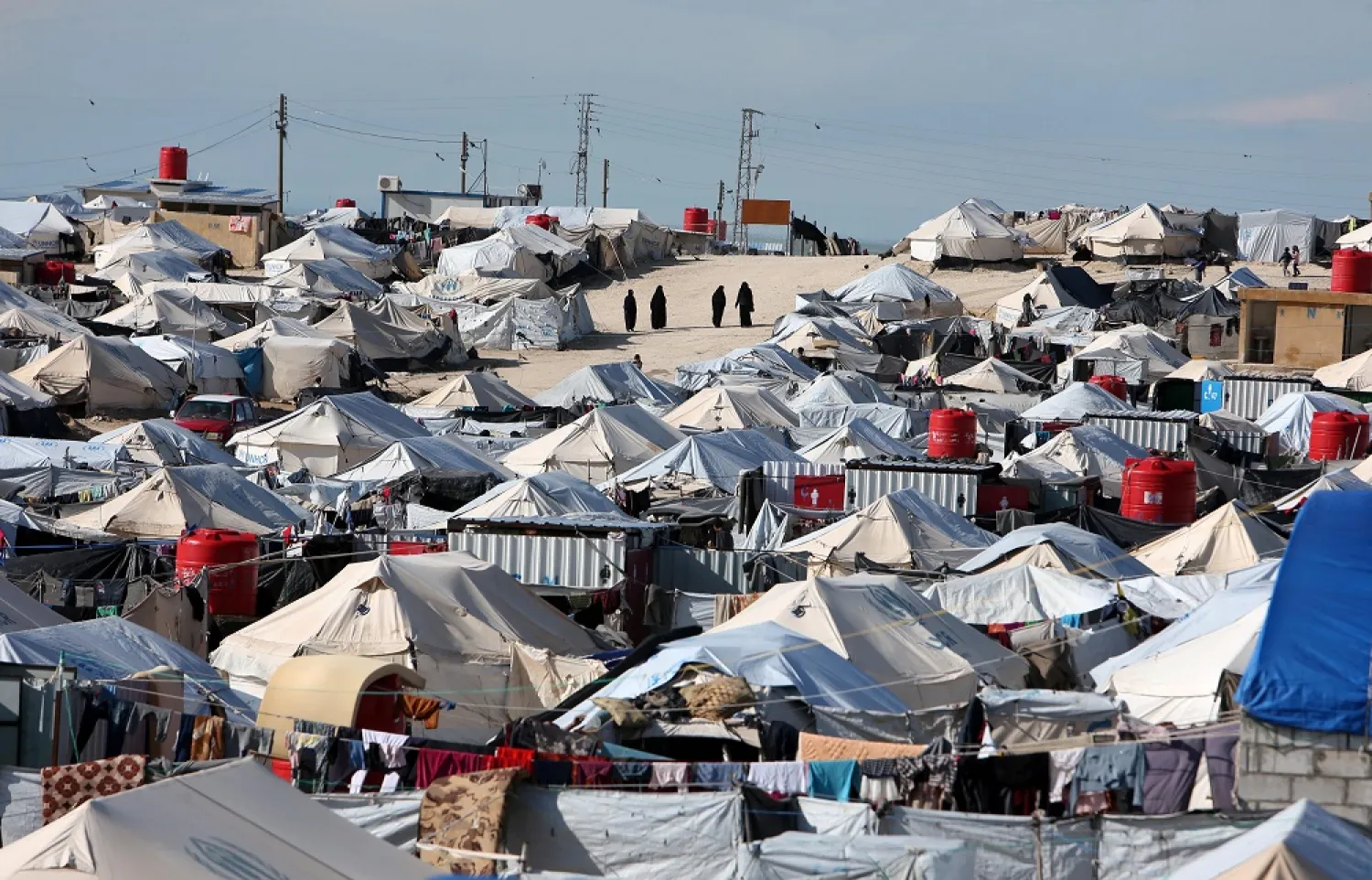The Syrian Observatory for Human Rights said Tuesday that seven assassinations were documented in the al-Hol camp in Syria’s Hasakeh province in the past two weeks.
Al-Hol is one of a half dozen displacement and refugee camps in northeastern Syria for families from ISIS-controlled areas.
Reliable sources told the Observatory that the Asayish security forces found two Iraqi brothers and one child, killed in their tent in the Hol camp.
The London-based watchdog also documented another assassination, whereby unknown gunmen killed Tuesday an Iraqi refugee working for the Asayish.
Clashes took place between members of Asayish and the gunmen who carried out the assassination. Security forces managed to arrest one of the attackers.
On Sunday, Observatory sources reported that a female Iraqi refugee was shot dead while in front of her tent.
On December 28, the monitor said another female Iraqi refugee was also killed in the camp after being shot by unidentified gunmen in front of her tent.
Three days earlier, gunmen assassinated an Iraqi refugee. Sources said the victim was a former collaborator with the Syrian Democratic Forces intelligence service.
Separately, hundreds of Qamishli residents and Asayish members attended Tuesday the funeral of Bashar Nayef Ahmed, an Asayish element, who was killed last Saturday “while performing his military duties”. There was no information about how he was killed.









